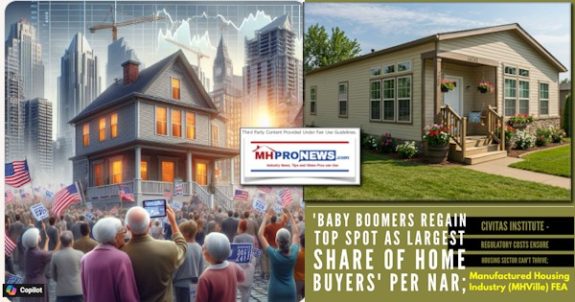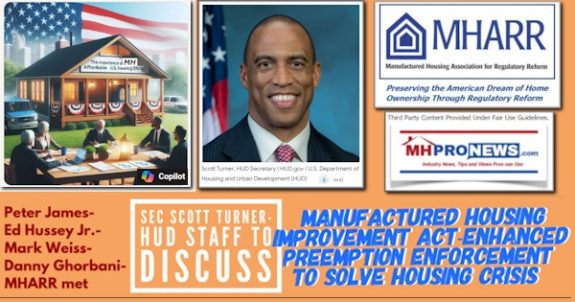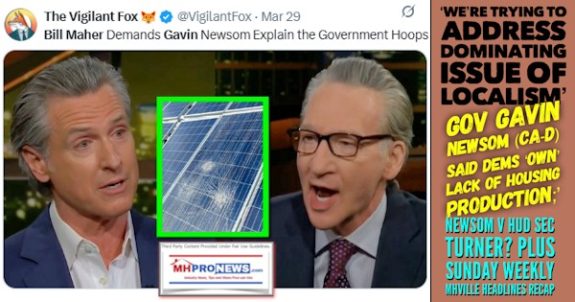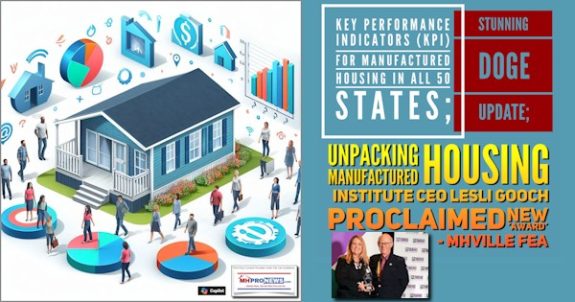MHI News
MHI Holds Productive Legislative Conference and Winter Meeting
MHI’s 2013 Legislative Conference and Winter Meeting, held February 24th through 26th in Crystal City, VA just outside of Washington, DC, proved to be a success with 83 industry leaders attending, similar to last year’s meeting of 84 attendees. The two-day meeting was filled with informative and well-attended division, committee, and council meetings with the focus on the primary issues to be addressed with the Congressmen in Tuesday afternoon’s meetings.
The following is a recap of the many productive meetings and events that took place during the 2013 MHI Legislative Conference and Winter Meeting.
MHI Legislative Conference Participants Press Legislative Priorities with Members of Congress
During MHI’s Legislative Conference and Winter Meeting, attendees and MHI staff participated in more than 70 visits with U.S. Representatives, Senators and Congressional staff. The conference offered meeting participants a unique opportunity to learn about key issues impacting the manufactured housing industry, get the latest policy updates from Washington insiders and key Congressional staff, as well as encouraging their Members of Congress for reform on issues of critical importance to the industry.
In preparing conference attendees to meet with members of their Congressional delegations, MHI Vice President of Government Affairs Jason Boehlert provided an overview and talking points on the issues of critical concern to the industry. Click here to view the presentation.
Conference Speakers

At the same session, Dr. Frank Nothaft, Vice President and Chief Economist for Freddie Mac provided a briefing on the housing market to include predictions of housing performance in 2013, mortgage rates, vacancy data, rental markets, loan defaults and delinquencies.
During Monday’s luncheon, sponsored by CIS Home Loans, Representative Stephen Fincher (R-TN) addressed the membership. Rep. Fincher encouraged MHI members on delivering their message regarding CFPB and Dodd-Frank changes that are necessary to provide relief to the industry, stating that these changes are necessary to preserve affordable housing options.
On Monday afternoon, Senator Joe Donnelly (D-IN) addressed the attendees. He emphasized his commitment to helping the industry move forward with its finance priorities on the Hill, and in ensuring that individuals with the ability to pay for a home have access to financing. He stated that he is more confident about the strength of the U.S. economy and that manufactured housing provides the quality and pricing needed to serve families in America.

Later on Monday afternoon MHI members heard a “Housing, Finance and Political Outlook” panel discussion moderated by Dwight Fettig of Porterfield, Lowenthal & Fettig, LLC. Panel members included The Honorable Robert Ehrlich, Jr. of King & Spalding; The Honorable Paul Kanjorski; The Honorable Blanche Lincoln of Alston & Bird; John Savercool of UBS Americas, Inc.; and Warren Tryon, of the Housing Financial Services Committee.
MHI Board of Directors
The MHI Board of Directors met on Monday, February 25th. Nathan Smith, a partner in SSK Communities, assumed the position of Chairman at the beginning of the meeting after Triad Financial Services, Inc. CEO Don Glisson, Jr. announced his decision to step down as Chairman. The Board officially recognized and expressed appreciation to Glisson for his many years of service to MHI.
MHI President and CEO Richard Jennison introduced Gay Westbrook as MHI’s new Vice President of Political and Public Affairs. In this role, she will be responsible for developing, promoting and executing MHI’s legislative and political priorities through increased industry participation in MHI-PAC, as well as strengthened coordination with state association executive directors to advance MHI’s legislative, grassroots, and fundraising initiatives at the state level.
Jennison also discussed MHI’s newly agreed upon partnership with MHARR to work together on three industry goals: 1) to have a non-career administrator appointed at HUD to oversee the manufactured housing program; 2) to have two non-lobbyist association representatives appointed to the MHCC; and 3) to work on GSE reforms that would provide more financing opportunities for manufactured homes.
Jennison also communicated that a Dues Restructuring Task Force will be appointed that will consist of the chairman of each MHI division and will also include MHI’s Treasurer, Phyllis Knight and MHI’s Controller, Laura Lee. The task force will examine dues for all member segments and make recommendations to the Board of Directors at the Annual Meeting in the Fall.
Discussion was held on proposed changes to MHI’s bylaws. It was noted that the non-voting member of MHEC has never been officially added to the bylaws and discussion was also held about allowing electronic communication by the board for conducting business.
The Federated States Division recommended that MHI consider protection of retail sales centers from the CFPB definition of a loan originator through commercial speech laws. It was noted that the Finance Lawyers Committee is exploring options at this time. The Dodd-Frank/CFPB Task Force recommended that MHI’s financial services policy priorities be focused on reforming three key areas of CFPB regulation that would, both individually and collectively, significantly limit the availability of credit in the manufactured housing market. They are: 1) HOEPA High Cost Mortgage Triggers; 2) HPML Appraisal Requirements; and 3) Loan Originator Compensation Exclusion for Manufactured Home Retailers. The Board members heard a report from the Suppliers Division Chairman regarding membership recruitment and research regarding the development a consumer oriented Web site. The MHI-PAC Chairman reported on contributions and donations as well as changes made to the MHI-PAC bylaws to have the sitting Chairman of MHI sit on the MHI-PAC Board of Directors.
Federated States Division
The Federated States Division discussed several issues that are currently having an impact on states. The Uniform Law Commission’s (ULC’s) Uniform Manufactured Housing Act was discussed. Several states report that the model act has been considered for introduction at the state level by state legislators and/or state members of the ULC. At this time, most states have decided not to consider the model act. Members also discussed the CFPB’s definition of a loan originator and loan originator compensation. MHI is concerned this definition creates unintended and unwarranted regulatory and compliance risks. The final rule’s definition of loan originator does not fully equate with the business model of the manufactured housing industry, including lending and retail sales practices. The division approved a motion to be presented to the MHI board to explore protection of retailer activities in the sale of a home under court rulings related to commercial speech.
Financial Services Division
During the meeting of MHI’s Financial Services Division, attendees received a briefing on several key mortgage finance rulemakings that were unveiled by the Consumer Financial Protection Bureau (CFPB) in January. Presenters provided detailed summaries and analysis of regulations governing appraisals for Higher-Priced Mortgage Loans (HPMLs), Qualified Mortgages (QMs), High-Cost Mortgage (HCM) guidelines, and Loan Originator Compensation. Copies of the presentations are available to MHI members at:
• Qualified Mortgage Rule Overview
• High-Cost Mortgage Rules Analysis
• Loan Originator Compensation Guidelines
In light of recent CFPB rulemakings, the Financial Services Division adopted a formal measure recommending the MHI Board of Directors formally establish three key priorities for reform within Dodd-Frank that would guide the advocacy activities of MHI’s staff. The specific issue areas include:
• HOEPA High-Cost Mortgage Triggers: Final CFPB rules fail to provide the manufactured housing industry relief from the APR, or points and fees triggers outlined in the Dodd-Frank statute. The task force recommends MHI continue efforts begun in the 112th Congress to enact legislation amending HOEPA’s High Cost Mortgage triggers, and that additional outreach to the CFPB be conducted to seek regulatory relief.
• HPML Appraisal Requirements: Rules developed by the CFPB exempt loan transactions (both personal and real property) on new manufactured homes and mobile homes (pre-1976 and non-HUD Code homes) from these appraisal requirements. CFPB is in the process of developing a supplemental proposal to potentially exempt existing manufactured homes. The task force recommends MHI continue its work with regulatory agencies developing these rules to extend this exemption to transactions on existing manufactured homes.
• Loan Originator Compensation Exclusion for Manufactured Home Retailers: Legislation is needed to definitively exclude retailers from the CFPB definition of Loan Originator, as long as they are only compensated for the sale of the home, and neither the retailer nor their employees received compensation from a lending institution, broker or loan originator as part of the home sales transaction.
Click here to view the recommendation endorsed by the Financial Services Division.
Manufacturers Forum
Fred Hallahan, Hallahan Associates, reported on 2012 modular shipments. In 2012 the shipments for residential modular homes were 13,325, up 9.2 percent from 2011 shipments of 12,202.
This 9.2 percent increase in modular shipments in 2012 compares to a 22.9 percent increase in conventional single family residential permits in 2012, demonstrating that modular home construction may be losing market share to the conventional single family housing market.
Modular shipments through December 2012 represents five consecutive quarterly year-to-year increases in activity, following four consecutive quarters of year-to-year decreases from 2010 third quarter through 2011 third quarter. The current quarterly trend appears to be an indicator of forthcoming quarterly increases in modular activity.
Conventional residential building permit activity in all states indicate that the precipitous annual decreases from 2005 peaks have ended and recent annual permit activity has changed from relatively constant levels in 2009 through 2011 to a growth-recovery level in 2012. All but five smaller states actually show an increase in annual permit activity for the past several years. According to Hallahan’s analysis of modular production trends:
• Most states will experience increases in single family residential permit activity in the next few years.
• Modular activity in most states will increase accordingly with increases in permit activity in the next few years; consistent with historical relationships between conventional permit activity and modular activity.
• Based on 2012 modular activity, thirty one states are showing signs of sustainable or increased modular activity. Only five states have experienced recent growth in modular home volume, and are also growing in modular market share.
• Based on current information available relative to economic conditions, modular shipments for 2013 are projected to range from about 14,500 homes to 16,000 homes; a nine percent to 20 percent increase above 2012.
Click here for a copy of Fred Hallahans’s presentation.
Suppliers Division
The division received an update on the Suppliers Division Membership Recruitment Initiative. The members were provided with the background materials, list of current members, lists of potential supplier and manufacturer members and a sample letter to non-members that had been sent by e-mail to Suppliers Division and Manufactured Housing Division members to aid in their membership recruitment efforts. The division members were asked to review the non-member lists and choose at least one potential non-member to recruit. The division also discussed researching the development of a consumer oriented Web site.
Members were encouraged to display the new “Proud Member of MHI” logo in marketing materials, websites, and on display in their business locations. Members can download the logos in various formats by clicking here.
Government Relations Committee
During a meeting of the MHI’s government relations committee, MHI Vice President of Government Affairs Jason Boehlert provided an overview and update on the association’s key legislative and regulatory policies for the 113th Congress.
Over the coming year, MHI will be working with Congress and the administration to:
• Provide industry members relief from provisions within Dodd-Frank that restrains credit available for the purchase of affordable manufactured housing.
• Require the Department of Energy (DOE) to collaborate with the Department of Housing and Urban Development (HUD) in developing energy efficiency standards for manufactured housing and utilize HUD to enforce and update any standards.
• Preserve and extend the New Energy Efficient Home Credit (I.R.C. 45L) for manufactured and modular housing, which is currently slated to expire at the end of calendar year 2013.
• Require that any new secondary mortgage finance mechanism developed by Congress and the administration as part of their efforts to reform Fannie Mae and Freddie Mac provide equal and open access to manufactured home loans, including those secured by personal property.
• Urge Representatives to show their support for manufactured housing by joining the Congressional Manufactured Housing Caucus.
Members can learn more about these issues by viewing the following MHI issue briefs:
• HOEPA Triggers
• Loan Originator Compensation
• DOE Energy Efficiency Standards
• 45L
• GSE Reform
• Congressional Manufactured Housing Caucus
For more information, contact MHI Vice President of Government Affairs Jason Boehlert at (703) 558-0660 or jboehlert@mfghome.org.
Manufactured Housing Institute-Political Action Committee
MHI-PAC Chair Rick Rand, Great Value Homes, introduced Gay Westbrook, recently hired by MHI, as the primary MHI staff responsible for obtaining contributions and identifying other fundraising efforts for MHI’s PAC and Administrative Fund. In addition, Gay will work closely with the state associations to reach out to key members of Congress in advancing MHI’s advocacy efforts.
The agenda for the meeting focused on a review of the 2012 financial statements for both the PAC and the Administrative Funds. In addition, the 2013 budget for both the PAC and Administrative Fund were presented for the Board’s approval. Chairman Rand noted that this was the first time a budget has been prepared for these funds. Finally, the Board briefly reviewed the 2014 Election Cycle Budget denoting planned campaign contributions by candidate noting that this document will change during the election cycle as a result of changes to Congressmen’s assignments and interest and willingness to support the manufactured housing industry. The Board will receive updates to the schedule on a quarterly basis with conference calls to discuss as necessary.
The meeting concluded with the unanimous approval to add Mr. D.J. Pendleton, Executive Director of the Texas Manufactured Housing Association, to the MHI-PAC Board of Trustees.
Manufactured Housing Educational Institute Board of Directors
The Manufactured Housing Educational Institute (MHEI) board of directors met Sunday evening, February 24th and reviewed the educational offerings for the 2013 Congress & Expo for Manufactured and Modular Housing. The Board also discussed the changes MHEI is making to its online training system. Courses are being moved to a new Web site which will require adjusted course pricing to pay for the use of the system. MHEI’s online system is now located at www.mhei.myicourse.com.
Lastly, the Board members reviewed the MHEI/MHI published document, “Play it Safe” and discussed having the document reviewed for updating and posting as a PDF on MHI’s Web site.
MHI thanks the following sponsor for their generous support of this event.
Gold Sponsors
CIS Home Loans
Hometown America
Triad Financial Services, Inc.
Silver Sponsors
Assurant Specialty Property
McGlinchey Stafford PLLC
RADCO
Style Crest, Inc.
TRA Certification, Inc.
U.S. Bank
House Passes Continuing Resolution to Avoid Government Shutdown, Sequestration Still in Effect
The House voted Wednesday, March 6th to pass a continuing resolution and fund the federal government through the end of the fiscal year (September 30th), making a shutdown later this month doubtful. The continuing resolution (CR), is subject to sequestration levels, setting the overall rate of spending at $982 billion, down from $1.043 trillion the previous fiscal year.
Sequestration is a series of automatic, across-the-board cuts to government agencies in an attempt to control the growth of U.S. national debt, which has exploded since the 2007 recession. Total U.S. national debt currently stands around $16 trillion. The sequestration cuts will total about $1.2 trillion over 10 years. The sequester has been coming for more than a year, and Congress pushed it back to March 1st as part of the fiscal cliff deal which passed at end of the last session.
The vote on the CR passed with a vote of 267 to 151, supported mainly by Republicans. Fourteen Republicans and 151 Democrats opposed the bill.
“Today, the House has taken the first step towards assuring the American people that the federal government will stay open, which President Obama agrees should be our shared goal,” House Speaker John Boehner, R-OH, said after the vote. “This legislation is straightforward and reasonable, protecting national defense and helping our veterans while maintaining the president’s sequester, which Republicans continue to support replacing because there are better ways to cut spending.”
“This CR does nothing to address the irrational cuts to defense and non-defense that the sequester will require. It could be very harmful to our economy and to our national security and place the most vulnerable in America at great risk,” said House Minority Whip Steny Hoyer, D-MD. “I want to vote for appropriations bills that enable us to limit the negative impact of sequestration on our defense community and the most vulnerable in our society, but this CR does not do that. This vote will do nothing to lessen the effects of the sequester.”
Now the Senate must pass or amend the CR before March 27th, when the current funding runs out, in order to avoid a government shutdown.
Overall, sequestration cuts will equal about five percent of FY 2013 non-defense discretionary spending. Sequestration is expected to have a minimal impact on FHA and other federally backed mortgage finance programs (as the loan authority funding is not impacted by the sequester), but processing may slow to a crawl, as federal workers are laid-off or furloughed. U.S. Secretary of Housing and Urban Development Shaun Donovan told a Senate panel last week that for this reason the sequester will be “deeply destructive” to the housing market.
Federal Housing Finance Agency Says Fannie Mae & Freddie Mac Will Build a New, Joint Securitization Platform to Shrink Government’s Role in the Mortgage Market
Government-sponsored enterprises (GSEs) Fannie Mae and Freddie Mac will build a new joint company for securitizing home loans as a stepping stone toward shrinking the government’s role in the mortgage market, said Edward DeMarco, acting director of the Federal Housing Finance Agency (FHFA). On March 4th, DeMarco told the National Association for Business Economics that “the overarching goal is to create something of value that could either be sold or used by policymakers as a foundational element of the mortgage market of the future.”
Fannie Mae and Freddie Mac were bailed out by the government in 2008, and together help finance about two-thirds of all new U.S. home loans. DeMarco is seeking to shrink their footprint, as well as reduce risks to the taxpayers that currently support the mortgage giants. Since they were seized by the government, Fannie Mae and Freddie Mac have drawn nearly $190 billion from the U.S. Treasury to stay afloat.
By creating a new securitization company, FHFA intends to pave the way for a single securitization platform and force the two enterprises to abandon their separate systems – shrinking the role they play in the overall housing system in the absence of legislation from Congress or direction from the Obama administration on their future. The new company will be structured as a joint venture that is owned by both Fannie Mae and Freddie Mac shareholders.
DeMarco said the new venture is not expected to begin securitizing loans next year. Instead, the focus will be to create the business and hire staff. The company will have a separate chief executive and board. Congress will ultimately have the authority to decide how the securitization platform is operated and whether it should be privatized.
Republicans and Democrats agree that Fannie Mae and Freddie Mac should eventually be wound down, but they have yet to find common ground on how to replace them.
HUD Announces Appointments to the Manufactured Housing Consensus Committee
On January 28th HUD announced new appointments to the Manufactured Housing Consensus Committee (MHCC). The MHCC is a 22 member Federal Advisory Committee that includes seven voting members in each of three categories. The three categories are Producers; Users; and General Interest and Public Officials. In the producer category, MHI member Manuel Santana, P.E., Cavco Industries, Inc. and Gregory Scott, ScotBilt Homes, Inc. were reappointed for a second two-year term. Dominic C. Frisina, of RoMar Homes, Inc., a retailer from Pennsylvania, was selected for a one-year appointment to fill a vacancy left by the departure of Bill Stamer from Champion Home Builders, Inc.
In the User Category, Michael Lubliner, Washington State University, was reappointed to a third two-year term. Timothy O’Leary with the Idaho Office of Energy Resources was appointed as a new member in the User category. A new member, Debra Blake, with the State of Arizona’s Office of Manufactured Housing, was appointed to serve a two-year term from the General Interest-Public category.
MHI members Leo Poggione, Craftsman Homes; Michael Wade, Southern Energy Homes; and Theresa Desfosses, a community owner and former manufacturer, with State Manufactured Homes, Inc., continue to serve on the MHCC with terms that expire December 2013, and December 2014.
According to HUD, two face-to-face meetings are planned for the MHCC in 2013, one in the spring, and one in the fall. A spring meeting has not yet been scheduled.
Click here for a complete list of the members of the MHCC.



























